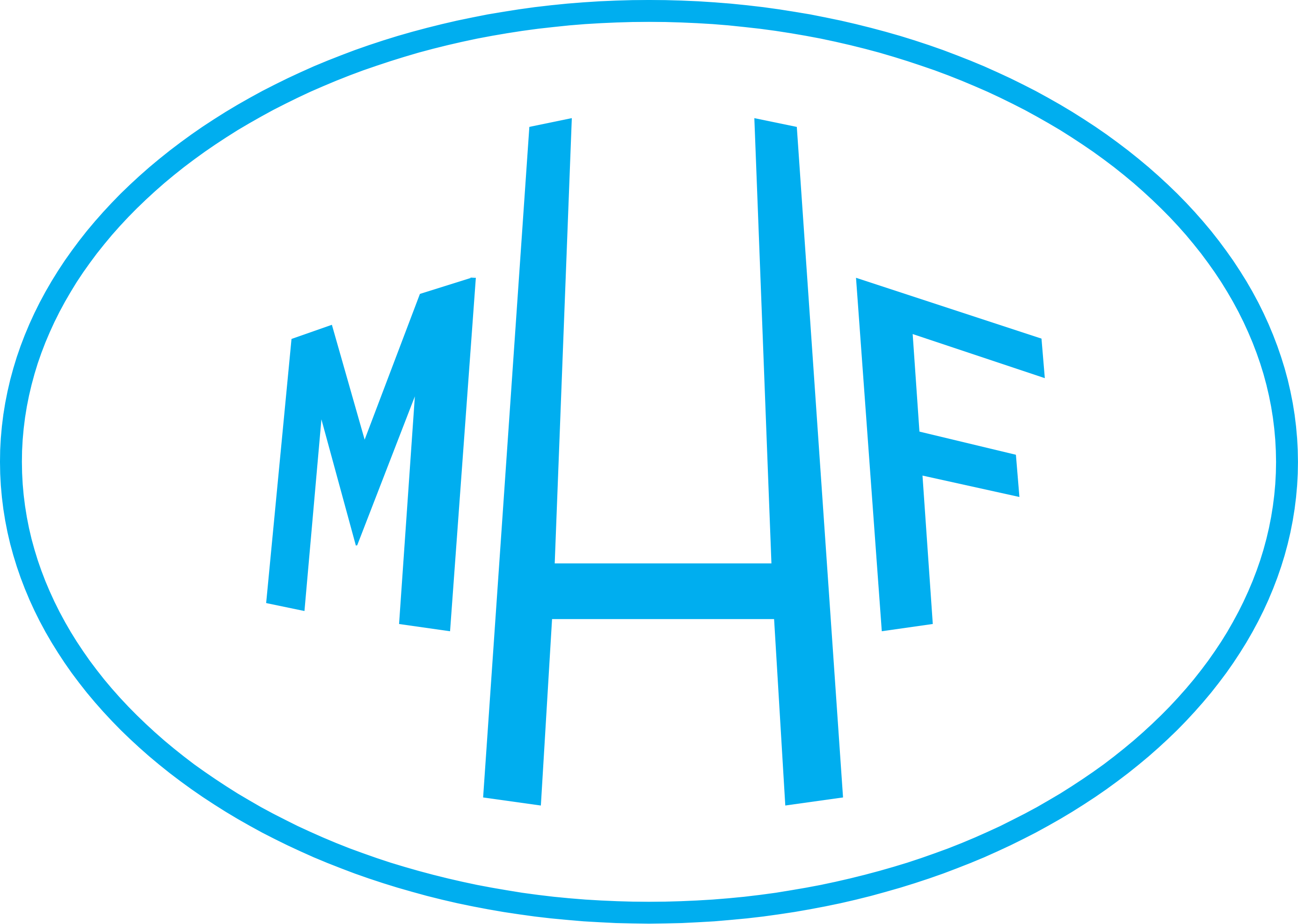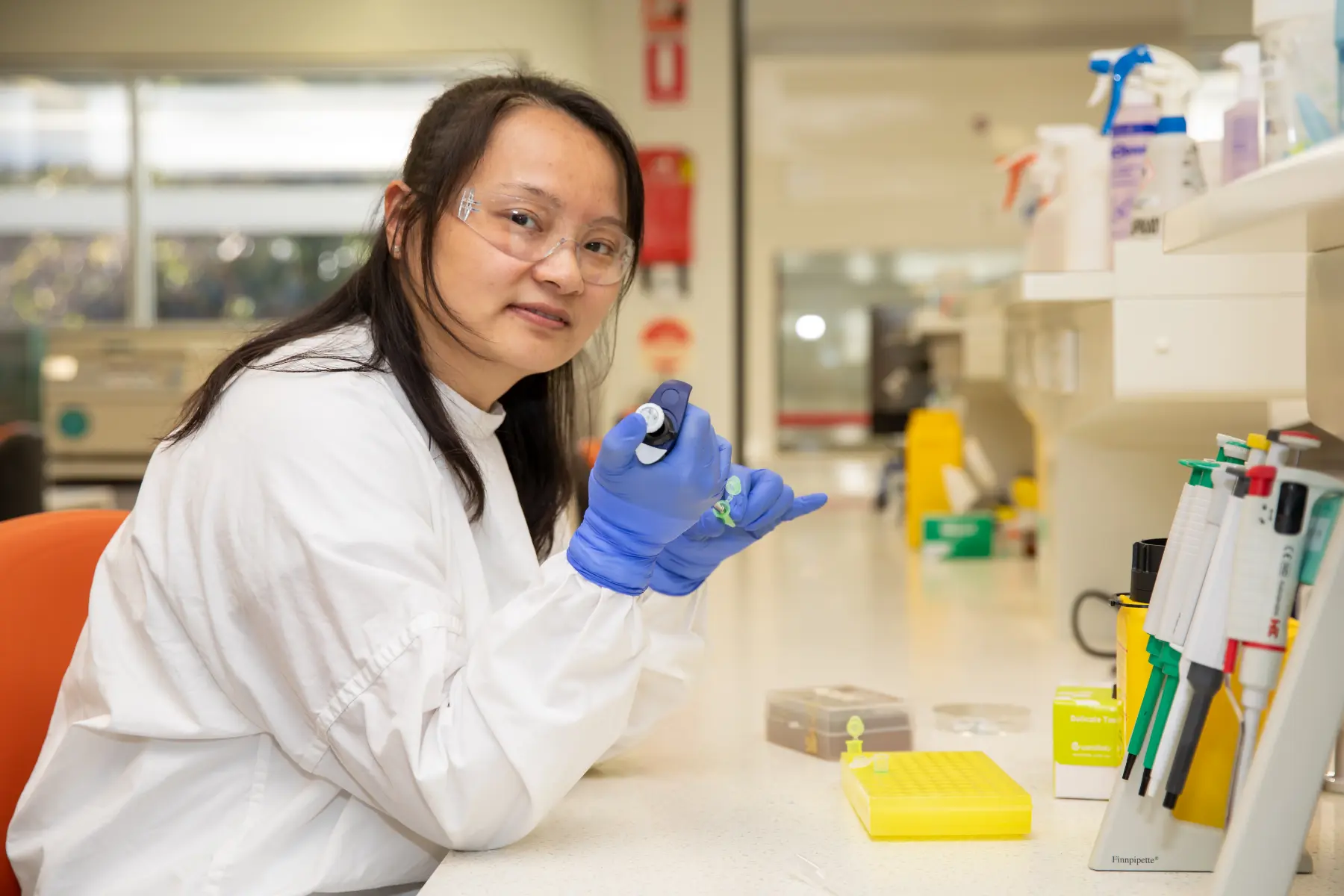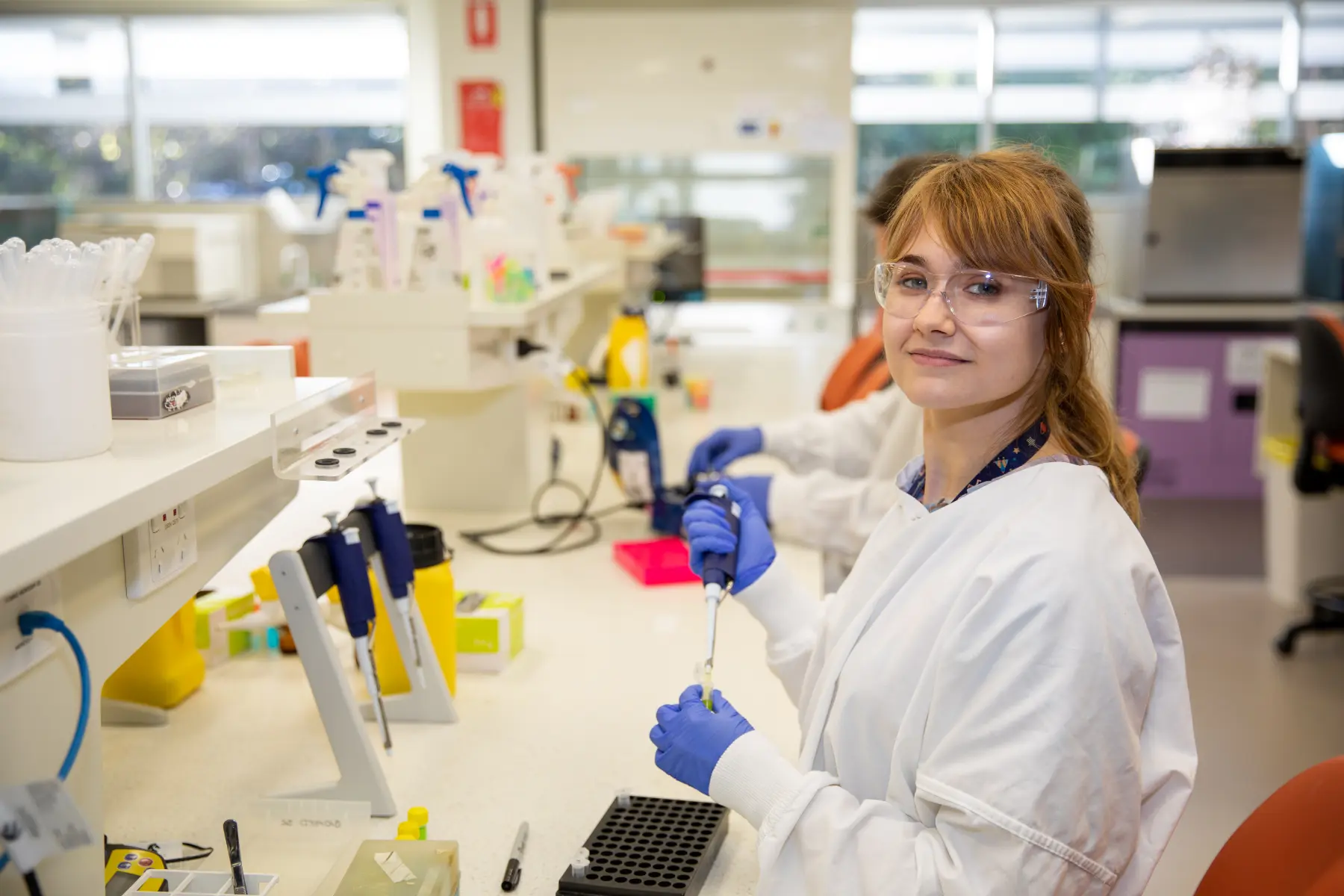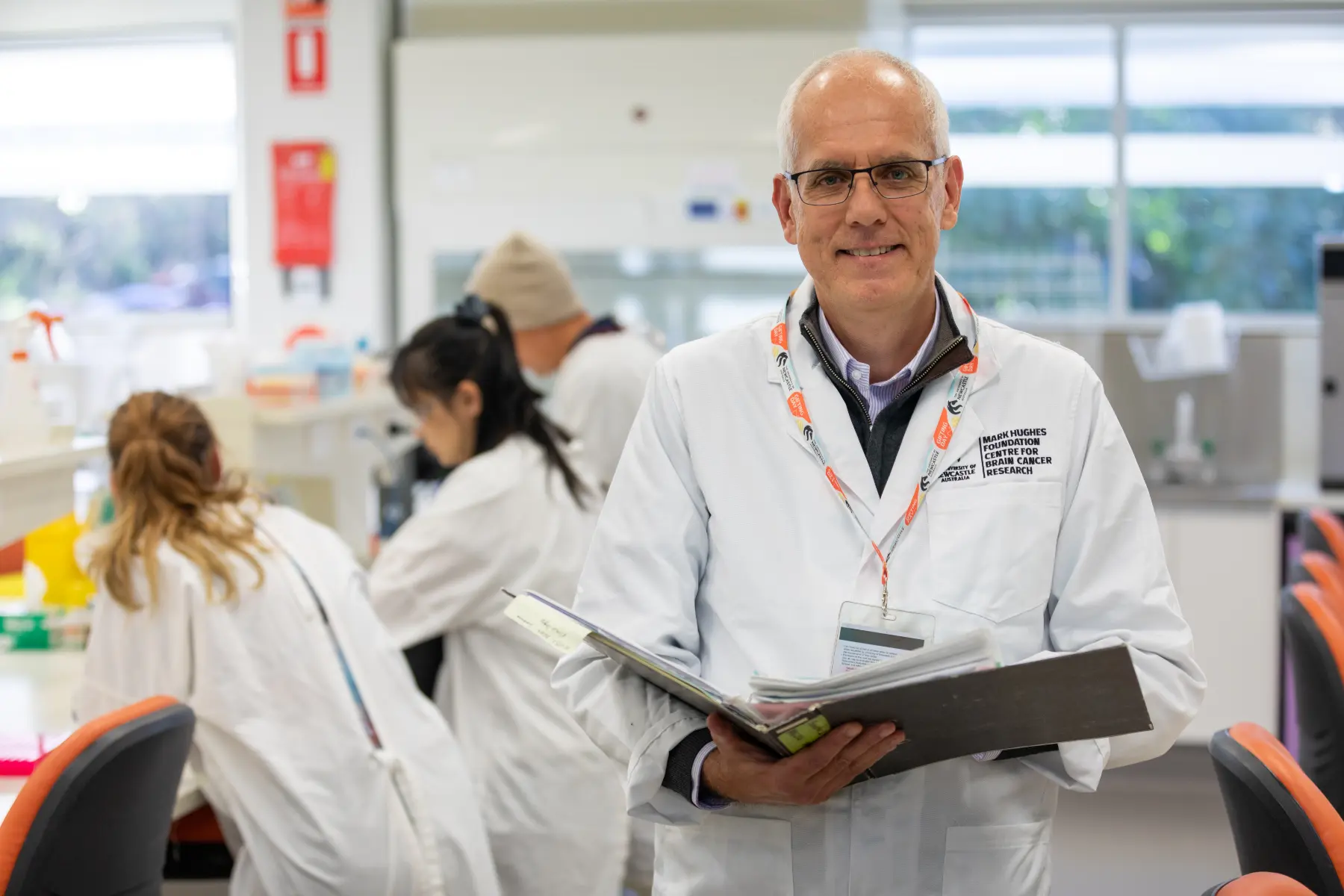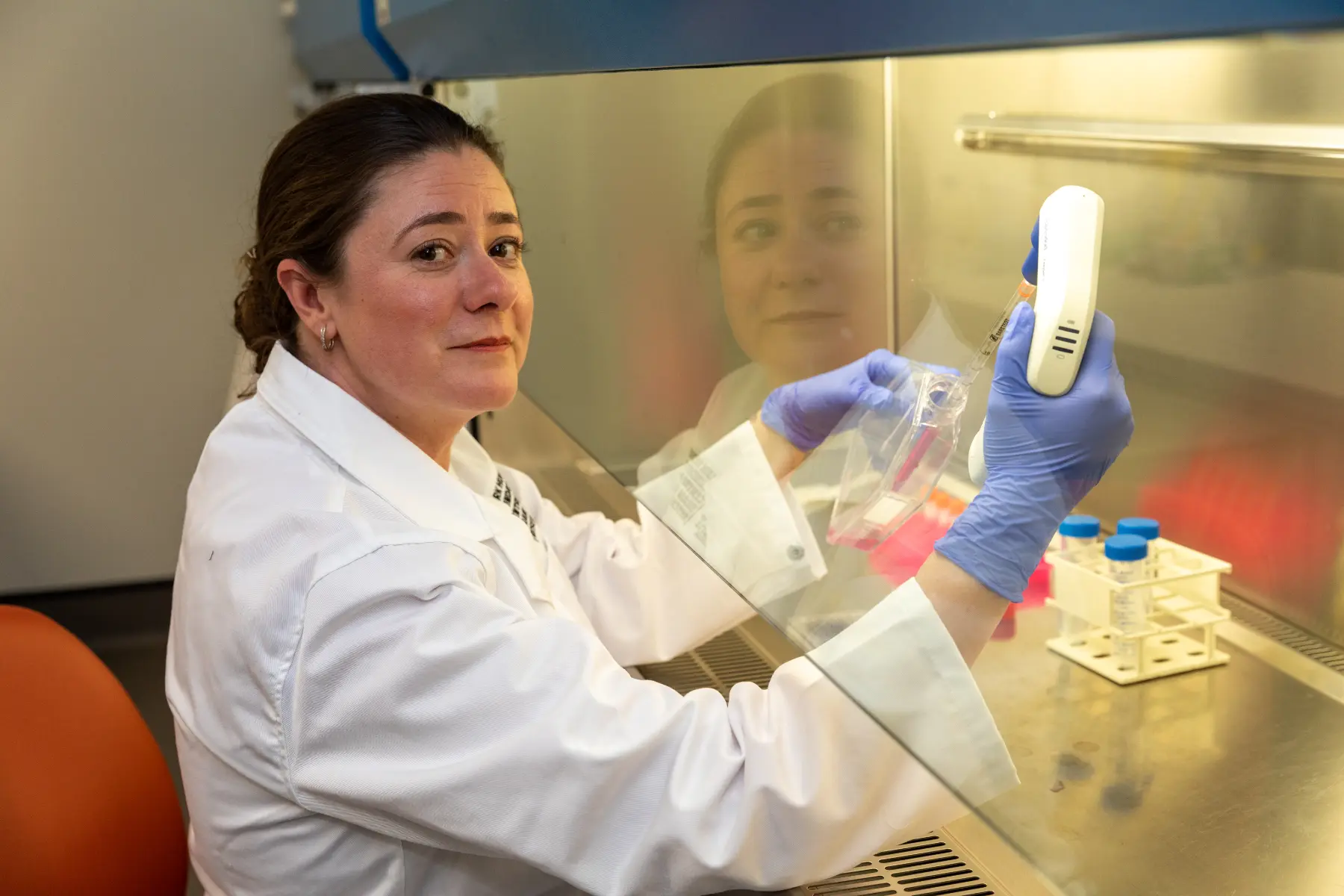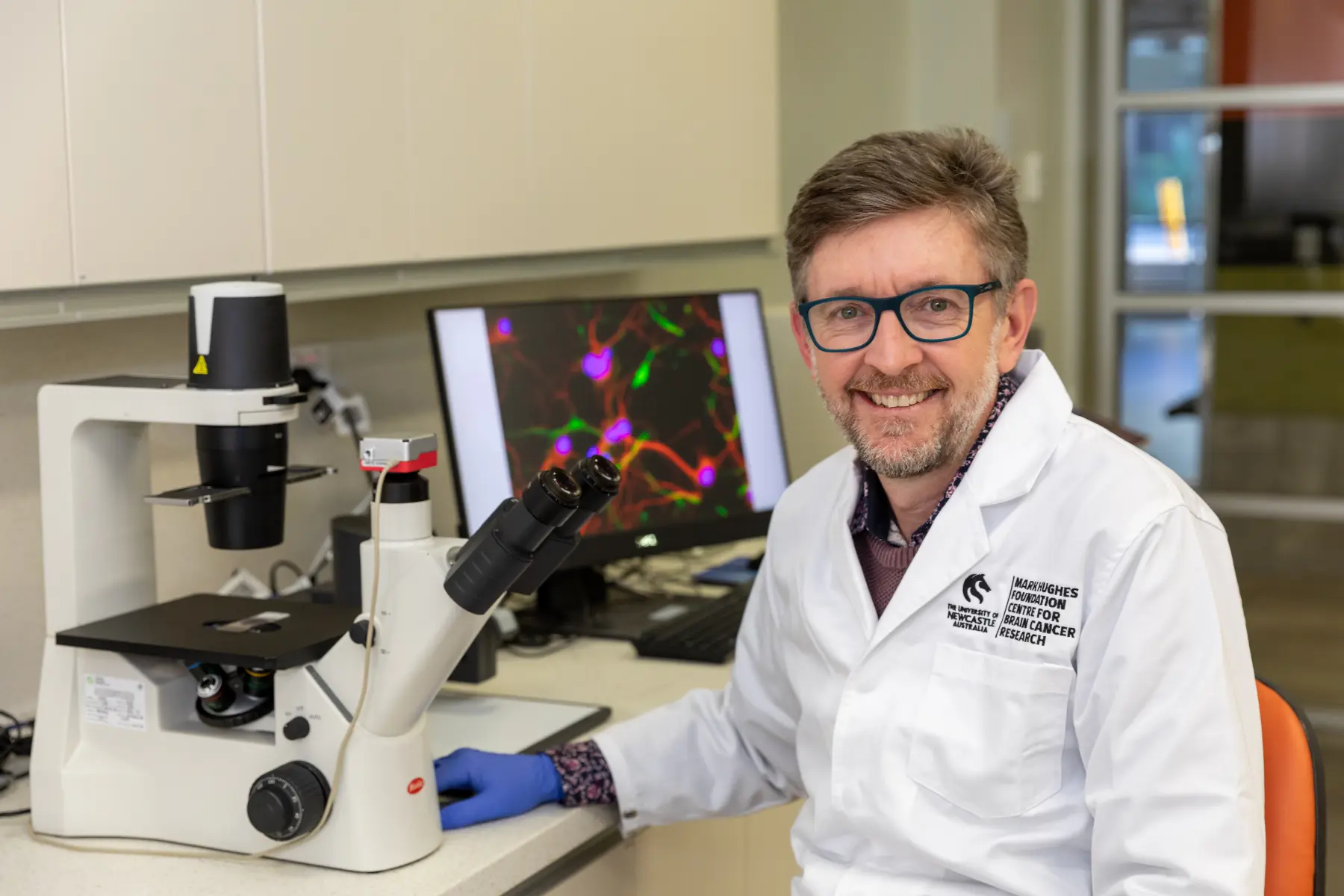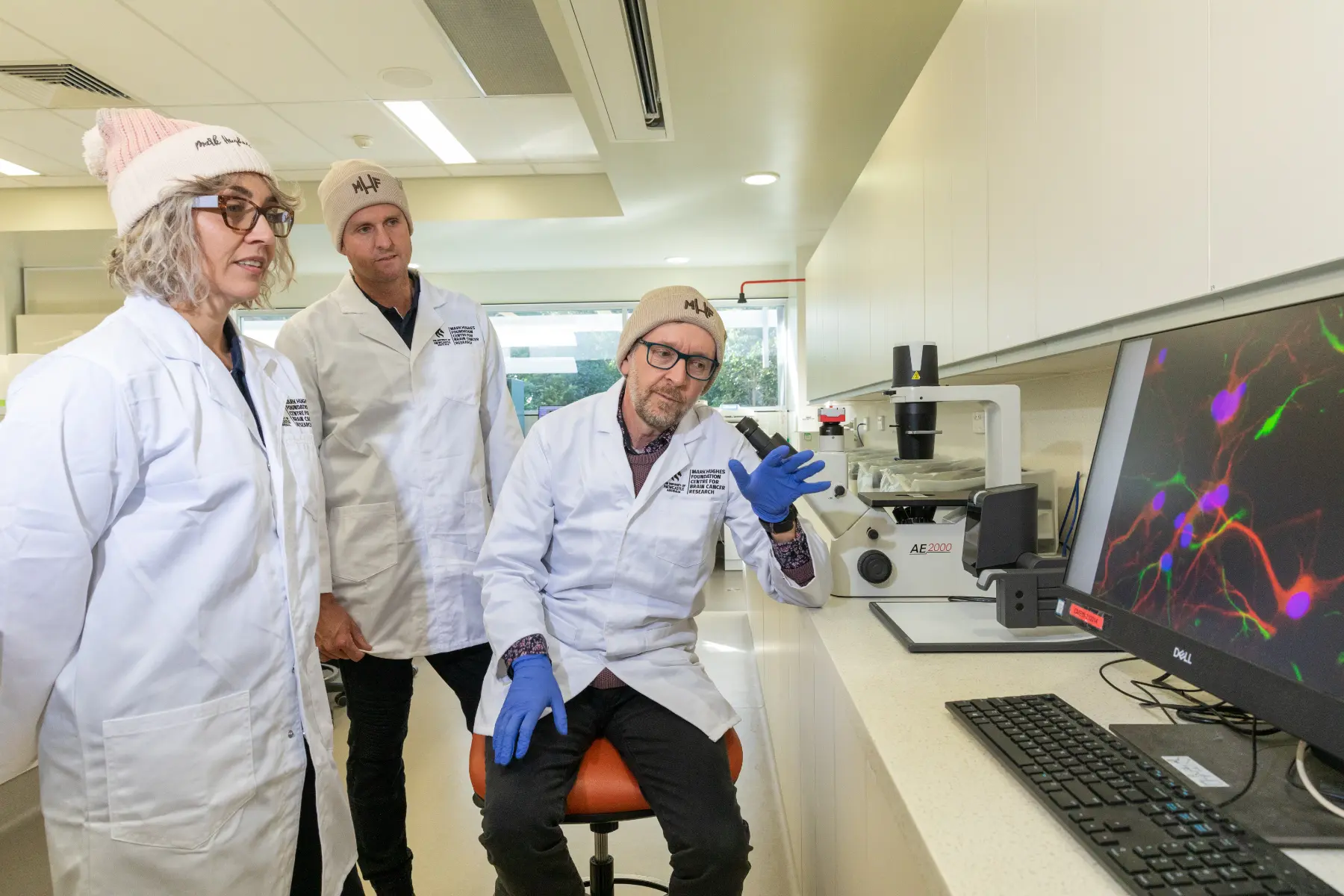Project Title: Targeting ER stress-induced neurotropism as a therapy in glioblastoma
Chief Investigators: Professor Hubert Hondermarck and Dr Chen Chen Jiang (The University of Newcastle)
Project Summary:
Imagine if we could eliminate resistance to treatments in GBM
Current treatments for glioblastoma (GBM) are all aimed at targeting cancer cells, but unfortunately, they are not effective for most patients. Professor Hubert Hondermarck and his team have obtained evidence showing that nerve cells stimulate the growth of GBM and contribute to the problem of current therapies not working.
GBM cells grow fast, their molecular machinery undergoes heavy stress, resulting in the release of growth factors that attract neurons into the tumour, which fuel tumour progression and resistance to chemo- and radiotherapies. Professor Hondermarck aims to target the nerve cells-cancer cell crosstalk mediated by cellular stress, to ultimately eliminate resistance to treatments in GBM.
Project Progress:
The nerve-cancer crosstalk is an emerging driver of tumour initiation and progression. The team thinks this explains why brain tumours (particularly GBMs), are so aggressive: they develop in a nerve cell microenvironment where the stimulatory impact of nerve cells is maximal. Work is underway to target important proteins in pathway, to disrupt the nerve-cancer cell crosstalk, inhibit the stimulatory impact of nerve cells and therefore help treatments to work better on GBM. Once the team can show this happens in the lab using the funding generously provided by MHF, the next step will be to test this in patients in a clinical trial.
Recently, the team published an important finding that could improve the efficacy of chemotherapy in killing GBM cells. A cell makes and folds proteins in a part of the cell called the endoplasmic reticulum (ER). The team showed ER stress in GBM cells. Targeting a downstream molecular activator of ER stress (the transcription factor XBP1) improved the efficacy of chemotherapy in killing GBM cells. The team is now exploring with clinicians how this new information could lead to improved treatments.
Acknowledgement of donor:
Through your kind donation, the team is testing test a new and innovative therapeutic option to treat GBM by targeting the crosstalk between neurons and GBM cells. If the team can achieve this, it would conceptually and practically change our knowledge of and clinical management of GBMs.
